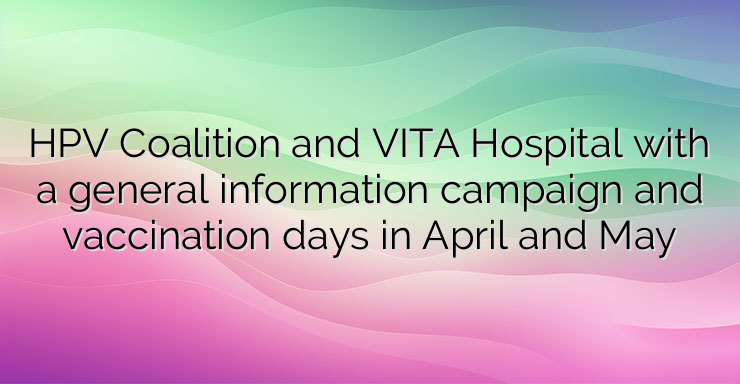From September 1, 2023, Bulgaria ranks among the countries of the European Union that have a state policy of prevention of HPV-related diseases. Free access to the state-of-the-art means of protection is provided to all girls aged between 10 and 14 years of age. It is a 9-valent vaccine against the 9 types of HPV, which are the most common causes of HPV diseases. The vaccine has been used for more than 16 years in 162 countries around the world, including almost all European countries. In the past year, the information campaign “Protect their future” was launched in support of increasing vaccination coverage in the country against the human papilloma virus (HPV). The organizer of the campaign is the HPV Coalition, uniting leading specialists in various fields of medicine and non-governmental organizations. The team of the HPV Coalition includes Prof. Dr. Iliya Karagyozov, MD, Head of the Department of Operative Gynecology and Pelvic Surgery at the VITA Hospital, head of the VITA Dysplasia Center and Chairman of the Bulgarian Association of Oncogynecology (BAOG). Thinking about the future and believing in change, the entire VITA Hospital team joins the campaign by organizing vaccination days as follows: Enrollment of patients over 14 years of age will be done online at: https://superdoc.bg /lekar/immunizatsia-sreshtu-choveshki-papilloma-virus. Patients will be immunized for free, paying only the cost of the vaccine: BGN 274.00. Important! The vaccine is free only if done at the general practitioner for girls between 10 and 14 years of age. First vaccination days – April 16 and 17, 2024 from 14:00 to 16:00; Second vaccination days � 14 and 15 May 2024 from 14:00 to 16:00; Place: VITA Hospital, Sofia, Base 2, 10 “Filip Kutev” St. During the specified vaccination days, explanatory information will be provided on the prevention of the human papilloma virus, the diseases that can be prevented, as well as the vaccines , which are available against HPV. Studies show that 90% of cervical cancer and other HPV-related cancers such as anal cancer and oropharyngeal cancer are preventable. The vaccine is most effective when given before sexual activity begins, but it can also be effective in people who have already been exposed to HPV. It is generally well tolerated and has few side effects, similar to those of all other vaccines. The benefits of HPV vaccination completely outweigh the risk of potential side effects. “The highest risk types of human papillomavirus are mainly types 16 and 18. We call them that because they cause over 90% of cervical, vaginal and vulvar cancers. They also cause cancer of the anus, penis and throat. The 9-valent vaccine also covers the types causing ano-genital warts. It is important to know that vaccinated children are subject to regular preventive examinations after the beginning of their sexual life,and that timely detection and treatment of precancerous changes is successful in almost 100% of cases,” explains Assoc. Dr. Karagyozov. HPV vaccination does not require prior carrier testing, even for girls and boys who are already sexually active. Vaccination candidates must be clinically healthy before administration of the vaccine. It is believed that the main risks for HPV are the increased number of intimate partners, as well as the lack of protection during sex. Early initiation of sexual contact, as well as a weakened immune system, smoking and poor intimate hygiene are also risk factors. The only specialized center in the country for the early diagnosis and treatment of precancerous conditions of the female genitalia VITA Dysplasia Center unites experts (oncogynecologists, histopathologists, cytologists) with a priority focus on early detection, diagnostic clarification, adequate treatment with subsequent follow-up of precancerous and benign changes of the female genitalia. HPV infection is usually asymptomatic, which is why regular screening and preventive examinations are extremely important.


Leave a Reply